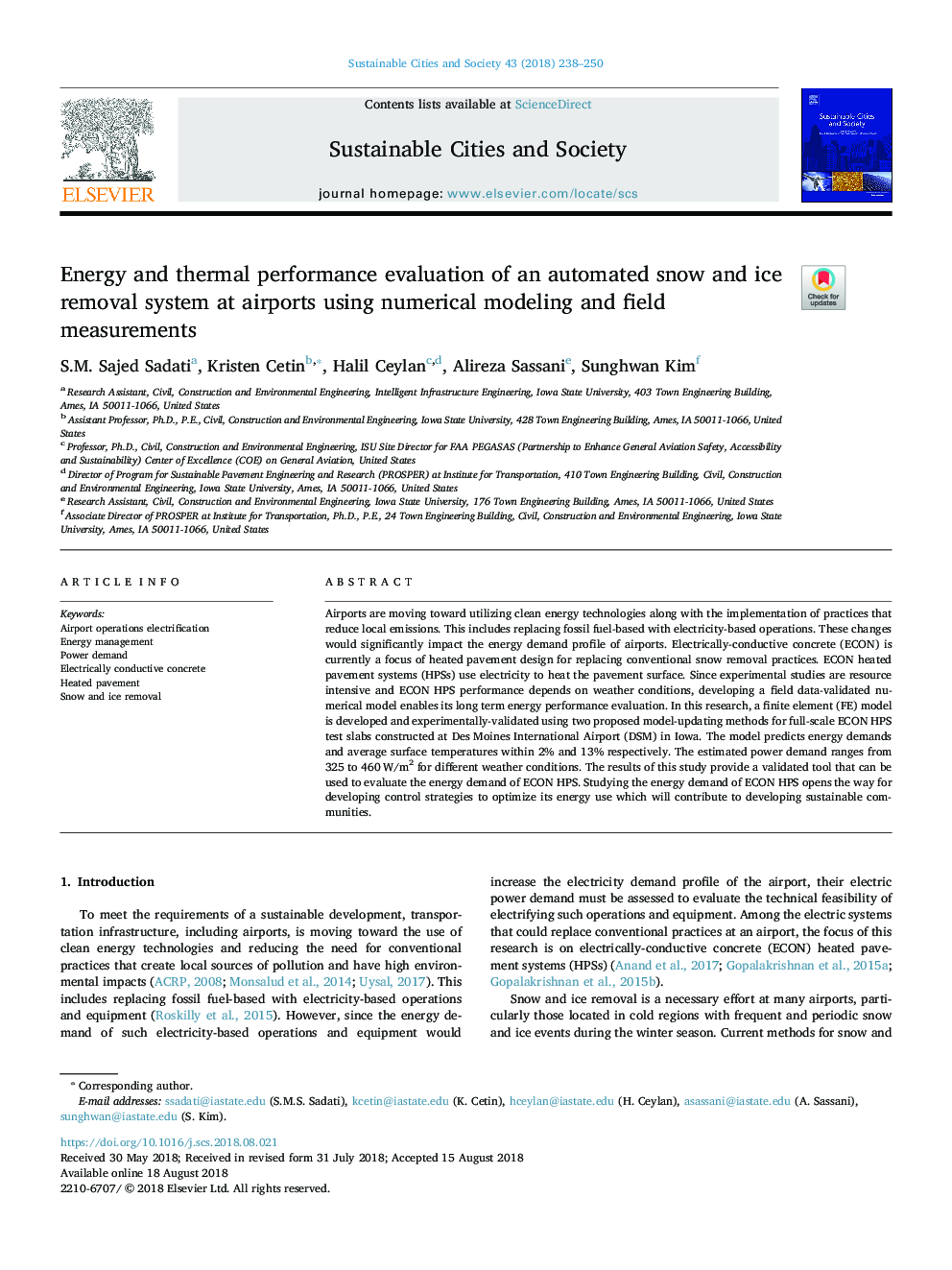| Article ID | Journal | Published Year | Pages | File Type |
|---|---|---|---|---|
| 10132164 | Sustainable Cities and Society | 2018 | 13 Pages |
Abstract
Airports are moving toward utilizing clean energy technologies along with the implementation of practices that reduce local emissions. This includes replacing fossil fuel-based with electricity-based operations. These changes would significantly impact the energy demand profile of airports. Electrically-conductive concrete (ECON) is currently a focus of heated pavement design for replacing conventional snow removal practices. ECON heated pavement systems (HPSs) use electricity to heat the pavement surface. Since experimental studies are resource intensive and ECON HPS performance depends on weather conditions, developing a field data-validated numerical model enables its long term energy performance evaluation. In this research, a finite element (FE) model is developed and experimentally-validated using two proposed model-updating methods for full-scale ECON HPS test slabs constructed at Des Moines International Airport (DSM) in Iowa. The model predicts energy demands and average surface temperatures within 2% and 13% respectively. The estimated power demand ranges from 325 to 460âW/m2 for different weather conditions. The results of this study provide a validated tool that can be used to evaluate the energy demand of ECON HPS. Studying the energy demand of ECON HPS opens the way for developing control strategies to optimize its energy use which will contribute to developing sustainable communities.
Related Topics
Physical Sciences and Engineering
Energy
Renewable Energy, Sustainability and the Environment
Authors
S.M. Sajed Sadati, Kristen Cetin, Halil Ceylan, Alireza Sassani, Sunghwan Kim,
